Do you want to use a VA loan to purchase a reasonably expensive home? Do you need to borrow more than the “conforming” loan limit for your county? Have you heard about the VA jumbo loan but aren’t really sure what it means?
If you answered yes to any of these questions, you’re in the right place.
This article will help you make sense of one of the most confusing subjects in the world of VA loans. VA loans seem like a labyrinth, especially where jumbo options are concerned. Understanding its details is essential as it will help you make the right decision about your home purchase.
No matter whether you’re a first-time homebuyer or an experienced jumbo loan expert, this guide will help you find answers to your questions. This will make your home purchasing process clear and efficient.
At the end of this article, you’ll understand how VA jumbo mortgages work, making you confident to consider this financing option for your high-value house purchase.

What Is a VA Jumbo Loan, Exactly?
In short, a VA jumbo loan is a government-backed mortgage loan that exceeds the conforming mortgage size limit in the county where the home is located. There’s a lot going on in this definition, so let’s break it down one term at a time.
- VA loan: A VA loan is a home loan guarantee program provided by the government to active military members, service members, and spouses who have lost their service person.
While some conditions may apply, Veterans may get advantageous homeownership opportunities through VA loans with favorable terms such as competitive interest rates and the option of no down payment requirements.
This opportunity proposes to help military veterans and army members with affordable financing, thus being a good choice for them looking for home purchases.
- Conforming Loan Limit: A conforming loan limit can be defined as a maximum amount of money that can be borrowed through the usual mortgages offered by Fannie Mae and Freddie Mac.
Likewise, these figures are revised every year (even at the county level), and they stipulate the highest level of loans that government-sponsored enterprises can sponsor for purchase or securitization.
For example, most counties in 2023 had a conforming loan limit of $726,200, with upper limits reaching as high as $1,089,300 in high-cost areas, which provides an altitude representation of regional disparities in housing market conditions and property values.
Jumbo Loan: Jumbo loans are mortgage loans more significant than the loan limit set out by the FHFA, also known as the Federal Housing Finance Agency. These are loans, usually named “non-conforming” mortgages, which target homebuyers getting financing for expensive properties that are priced beyond the conforming lending limits.
Jumbo loans are known for the larger loan amount they come with. As a result, they demand a higher down payment and more stringent underwriting criteria. This is to safeguard against the increased risk of the lender loaning out sizable sums, which makes these types of loans less accessible to specific borrowers than conforming ones.
Therefore, a jumbo VA loan perfectly ties in with a VA loan, which has additional benefits, like no down payment requirements and a competitive interest rate, with a third benefit of allowing the borrowers to get an above-conforming loan. Along with that, these features make it the preferred option for veterans who want to get properties in areas that are characterized by high housing prices.
Jumbo VA loans extend the VA loan program benefits to those veterans with the financial ability to purchase high-cost properties. This happens without having to make a down payment, further empowering military personnel to pursue homeownership regardless of where the property is located in the country.
The bottom line: If you want to use a VA loan to buy a house and need funding that is more than the conforming loan limit for your particular county, you’ll be using a VA jumbo loan.

What Does the ‘Jumbo’ Label Mean for Borrowers?
At this point, you might be wondering why these labels matter. The short version is that a jumbo loan often imposes stricter criteria compared to its smaller “conforming” counterparts.
A larger loan amount brings more risk to the lender. To mitigate this added risk, a mortgage lender might pay closer attention to VA jumbo loan requirements, which are a borrower’s credit score, debt-to-income ratio, and other qualification factors.
But unlike a regular jumbo loan (that does not receive government backing), borrowers who use jumbo VA loans can still avoid making a down payment. That’s a huge benefit, especially when you consider that regular jumbos often require 20% down.
The one caveat here is that you must have “full entitlement” to avoid the down payment on a VA jumbo loan. If you have “remaining entitlement” (perhaps because you’ve used a VA loan in the past and still own the home), you’ll probably have to make a down payment if your loan amount exceeds the conforming limits.
Understanding the distinction between complete and remaining entitlement is crucial for veterans navigating the VA jumbo loan landscape. Full entitlement grants veterans the flexibility to finance their dream homes without a down payment, while those with remaining entitlement may need to consider down payment options if their loan surpasses the conforming limits.
By comprehending these intricacies, borrowers can effectively leverage VA jumbo loans to achieve their homeownership goals while optimizing their financial resources.

Full Entitlement Needed to Skip the Down Payment
This next part is a little confusing, especially for VA loans for first-time buyers who have never been through the process before. So, let’s break it down piece by piece:
If you have full entitlement for a VA loan, you can borrow any amount of money without having to make a down payment—even into the jumbo range. You can borrow the exact amount that the lender is willing to lend to you without putting any money down.
If you have remaining entitlement for a VA loan, you can only borrow up to your county’s conforming loan limit without making a down payment. If you borrow more than that limit, you’ll have to put some money down on the purchase.
As stated on the Department of Veterans Affairs website: “So if you’re able and willing to make a down payment, you may be able to borrow more than the county loan limit with a VA-backed loan. Remember, your lender will still need to approve you for a loan.”
The amount that a borrower with remaining entitlement would have to put down on a VA jumbo loan can vary due to several factors. It’s usually based on the difference between the loan amount and the conforming limit for the county where the home is located.
Navigating the intricacies of entitlement is pivotal for veterans seeking to maximize their VA loan benefits. Full entitlement grants borrowers the advantage of financing their home purchases without a down payment, offering unparalleled flexibility in the housing market.
Conversely, remaining entitlement restricts borrowing to the county’s conforming loan limit, necessitating a down payment for jumbo loans that exceed this threshold. This distinction underscores the importance of understanding entitlement levels and their implications for home financing. Veterans can leverage this knowledge to strategically plan their homeownership journey, ensuring they optimize their VA loan benefits while effectively managing their financial resources.

Summary of Key Takeaway Points
We’ve covered a lot of information and terminology in this article, and it’s a reasonably confusing subject. So, let’s wrap up by summarizing the key points.
Here’s what you should take away from this article:
- VA jumbo loans are government-backed mortgages that exceed the conforming loan limit in the location where the home is located.
- VA jumbo mortgages offer the advantages of a VA loan (like no down payment requirements, low VA funding fee, attractive VA jumbo loan rate, and no mortgage insurance) with the flexibility to finance more expensive homes.
- Borrowers with full entitlement to the program can avoid making a down payment on a VA jumbo loan, regardless of the amount being borrowed.
- Borrowers with remaining entitlement might need to make a VA jumbo loan rates down payment if the amount exceeds the conforming loan limit.
- VA jumbo loans typically have stricter underwriting standards due to their larger sizes. This means lenders might give extra scrutiny to a borrower’s credit score, debt-to-income ratio, and other qualification factors.
- Considering VA jumbo loan rates market analysis, VA jumbo loans can be a good option for veterans who are looking to purchase a home in a high-cost area.
Learn more: This article is part of a broader series that covers all aspects of the VA home loan program. It’s designed to educate military members and veterans on this important benefit. You can use the search tool at the top of this page to research almost any topic relating to VA loans!


 How to Buy a Condo Unit with a VA Mortgage Loan
How to Buy a Condo Unit with a VA Mortgage Loan 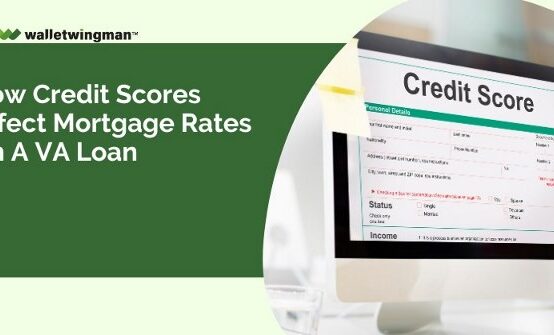 How Credit Scores Affect Mortgage Rates on a VA Loan
How Credit Scores Affect Mortgage Rates on a VA Loan 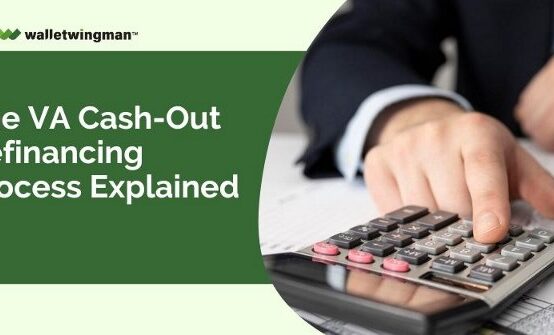 The VA Cash-Out Refinancing Process Explained
The VA Cash-Out Refinancing Process Explained 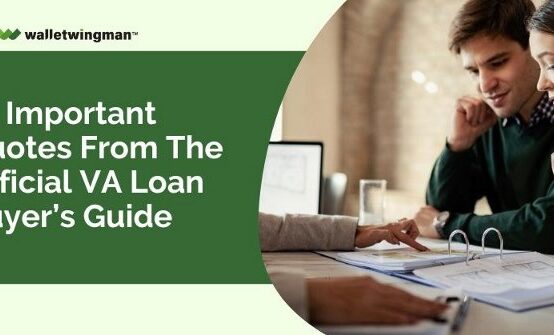 10 Important Quotes from the Official VA Loan Buyer’s Guide
10 Important Quotes from the Official VA Loan Buyer’s Guide 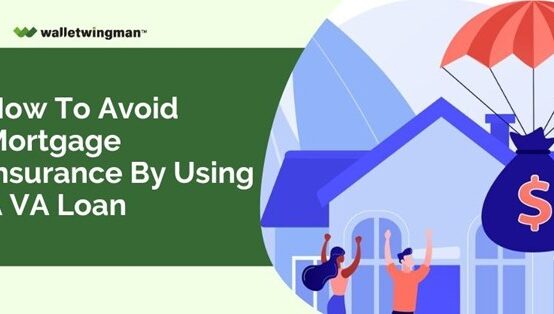 How to Avoid Mortgage Insurance By Using a VA Loan
How to Avoid Mortgage Insurance By Using a VA Loan 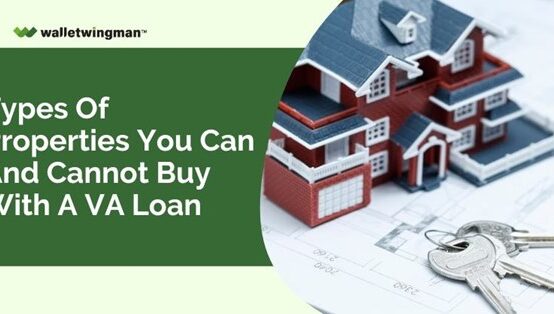 Types of Properties You Can and Cannot Buy With a VA Loan
Types of Properties You Can and Cannot Buy With a VA Loan 